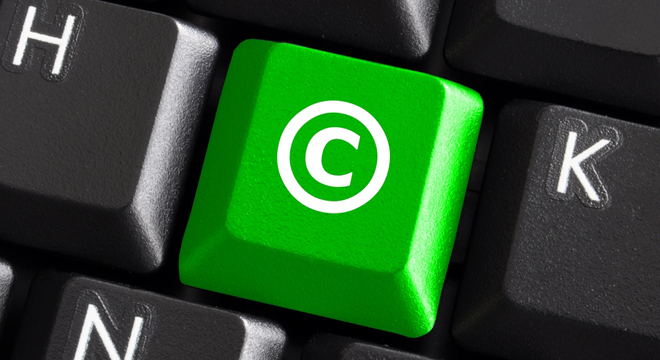We all had a laugh last week when pop singer Justin Bieber said Sen. Amy Klobuchar (D-MN) should be thrown in jail for proposing legislation that would make streaming unlicensed content online a felony. But does the bill actually threaten amateur artists?
After Klobuchar introduced S.978, something of an online frenzy broke out in protest. The website FreeBieber.org claimed Bieber faced up to five years in prison if the bill were to pass. Many have written that Bieber is safe from prosecution. But the reality might be slightly more complicated.
The legislation tweaks already existing copyright law, according to Sandra Aistars, executive director of the Copyright Alliance, a Washington-based copyright law advocacy group. Under current copyright law, uploading and downloading unlicensed material is prohibited, and the legislation changes that law to include streaming, since online streaming is now a popular way to distribute content.
“The legislation keeps copyright enforcement neutral as to the technology,” Aistars told TPM. She called the Free Bieber campaign a “clever gimmick,” but “totally false.”
From Open Congress, here’s a summary of the bill:
Makes unauthorized web streaming of copyrighted content a felony with a possible penalty of up to 5 years in prison. Illegal streaming of copyrighted content is defined in the bill as an offense that “consists of 10 or more public performances by electronic means, during any 180-day period, of 1 or more copyrighted works” and has a total economic value, either to the copyright holder or the infringer, of at least $2,500.
The legislation has been reported out of committee and is awaiting full consideration by the Senate.
Bieber, of course, rose to fame after posting YouTube videos of his covers of Chris Brown and Usher songs. But under the proposed legislation, it’s extremely unlikely artists like Bieber would be prosecuted, said Mitch Glazier, senior executive vice president of the Recording Industry Association of America.
“If you’re a person who is recording a home video and posting it, you’re not willfully infringing,” Glazier told TPM. “You don’t have criminal intent. The Justice Department is never going to go after you. And YouTube is licensed.”
So what would constitute willful infringement or criminal intent? For instance: if a user asked for money, or if a music publisher sent a notice asking a person to refrain from using the licensed material, but that person continued anyway. Glazier said the legislation is not “revolutionary, (but it) provides one more tool to be able to block some significant resources to pirates.”
While the legislation may be well-intentioned, Shubha Ghosh, Vilas Research Fellow and Professor of Law at the University of Wisconsin, said its enforcement might not be up to those who sponsor the law. “It all depends on who the prosecutor is,” he said.
“My view is the more realist view,” Ghosh told TPM. “You never know how the legislation will be interpreted. Depending on the legal climate, it could be interpreted quite a bit.”
That’s what Tiffiniy Cheng — director of Fight for the Future, the group behind the Free Bieber campaign — is worried about.
She said legislation is worded too broadly to protect ordinary users. Proponents of the legislation claim the law will not target ordinary individuals, but the reality is often different, she said. A key aspect of S.978 seems to be whether a user gains or seeks profit from the material. But Cheng argued that an artist like Bieber, whose not-for-profit YouTube videos led to a successful career, could be targeted as gaining commercially from those performances. “Commercial infringement isn’t well defined,” she said.
Shyam Balganesh, a law professor at the University of Pennsylvania, said if the law aims to create more incentive for prosecutors to go after copyright infringers, it’s missing the mark.
“I personally am not of the view that criminalization is achieving a lot over here,” Balganesh told TPM. “The big problem with copyright law is it’s not providing enough clarity to users of information.”
He said the legislation could lead to amateur performers — say, the former Justin Biebers of the world — to further risk aversion. If you aren’t a copyright law expert, and you see the law has changed, you may be discouraged from producing creative works. And that would be a huge loss, he said.
“Numerous industries and numerous kinds of creativity happen because they rely on preexisting creative work,” the professor said. “It’s the whole idea of derivative creativity.”
The bill, though, “does not make a crime what is not already a crime,” said Ian Koski, communications director for Sen. Chris Coons (D-DE), who co-sponsored the legislation.
Speaking on the streaming issue, Koski said, “just because this is happening in real time or being played back and not downloaded, doesn’t make any less theft. We have to protect our jobs. We have to protect our copyrights … our intellectual property.”
Professor Ghosh said he doesn’t think there is any “nefarious intent” behind the law. It’s just trying to deal with the legal and technological issue at hand, he said. “It’s harder to know about the social and cultural application.”
Ultimately, Balganesh said, copyright law does not pay enough attention to those doing the copying. “We shouldn’t be speaking only to prosecutors, we should spend more time talking to copiers,” he said. “And we’ve missed that.”






